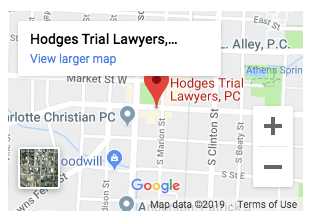
Divorce proceedings that include child custody agreements can be overwhelming and emotionally charged. Deciding upon sole or joint custody and making shared custody and visitation arrangements are often the most difficult part of any divorce. Even after all these issues have been decided, turmoil can return when the custodial parent wants to relocate.
When the non-custodial parent objects to relocation, the courts must decide what the best interests of the child will be, and whether the custodial parent can relocate. The laws governing child custody vary from state to state, and depending upon where the parents live, relocation may be subject to consent and be limited in distance.
Factors to Consider in Child Custody Relocation
When a custodial parent wants to relocate, most states require written notification be sent to the non-custodial parent. Every state has their own requirements on how far away a parent can move, but most states require written notice for any move farther than 60 miles. In some cases, state law prohibits custodial parents from moving across state lines, while others set more lenient rules, which allow parents to move hundreds of miles away and across state boundaries.
If the non-custodial parent objects to the proposed move, they can petition the court to hold an evidentiary hearing where a judge will decide if the move is being made in good faith and in the child’s best interest. Each parent is advised to seek legal counsel and representation by an experienced child custody lawyer to ensure their legal rights are protected. The judge will need to determine that the custodial parent’s request is based on need or opportunity and not made to limit the child’s contact with the non-custodial parent.
The first factor a judge will consider in all child custody cases is what serves the best interests of the child. The judge will also consider the financial and career opportunities the move provides for the parent, the quality of life the child will have when they relocate, and if there are family members located in or near the area of relocation.
Negotiating Terms Outside of Court
The courts encourage parents to negotiate relocation issues outside of the court whenever possible. Parents that can agree to relocate and establish visitation and transportation arrangements outside of court can avoid a great deal of stress. Even if parents can come to a relocation agreement privately, it is in their best interest to seek legal counsel to draw up an official document that outlines the stipulations of the agreement. This document should specify how far the parent is able to move, whether they can decide to move again without notice, and who will be responsible for travel expenses connected to visitation.
Parents that carefully consider the impact of relocation on a child and the effect it will have on the non-custodial parent tend to have the most success. Children will undoubtedly experience separation issues and need time to adjust to their new home. When parents work together amicably, relocation can be a positive experience for all involved.
Huntsville Child Custody Lawyers at Hodges Trial Lawyers, P.C. Provide Counsel and Representation in All Areas of Child Custody
If you are considering relocating with your child post-divorce, call the Huntsville child custody lawyers at Hodges Trial Lawyers, P.C. at 256-539-3110 or contact us online to schedule an initial consultation today. Located in Huntsville and Athens, Alabama, we serve clients throughout North Alabama, Madison County, Limestone County, Marshall County, Jackson County, Morgan County, and Lauderdale County.


